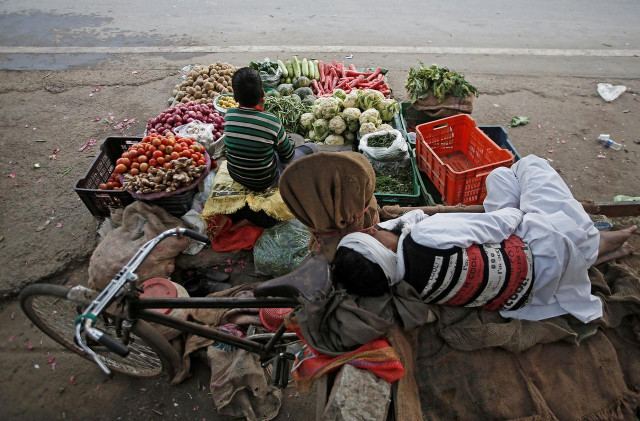Vegetable farmers battle climate change, dilapidated roads, rising costs
In spite of minimal rainfall in the area, growers have been able to cultivate multiple crops

The Soan Valley has a distinct agricultural identity due to the cultivation of non-seasonal vegetables like potato, cabbage, coriander, red chili, capsicum, garlic and onion. The valley is said to produce vegetables which possess a distinctly different taste and quality to those elsewhere in the country. However, the farmers and landowners of the area are facing a myriad of problems affecting the cultivation of vegetables, ranging from droughts and deforestation to dilapidated roads.
The factors have contributed to rising costs of cultivating crops, thus threatening livelihoods and business in the region. Although the farmers’ hard work and resilience is key to the production of potatoes and other vegetables, they also want steps taken to help them. In spite of minimal rainfall in the area, farmers in the Soon Valley have been able to cultivate multiple crops, including potatoes through the use of tube wells, although water usage has been deemed excessive.
Nowshera Tehsil Agriculture Officer Dr Farooq Ahmad told The Express Tribune that vegetables are grown in the valley from May to October. The most important crop from the region, potatoes, are cultivated twice a year; the first crop is grown from January to May using imported Dutch seeds, raising production costs. The second is grown from August to December using local seeds from Kasur, Daska and Okara. Costs are further increased as the potato crops require more water and fertilizer. Rising prices of diesel, fertilisers and medicines are causing further problems for landowners.
This is not an issue unique to potatoes as cabbage, capsicum and onion production poses a similar problem for landowners: the costs are getting far too high. Haji Ghulam Mustafa, a landowner of the Ochhali area, told The Express Tribune that potato production is declining every year mainly due to malnutrition, high seed prices and climate change. Another local grower, Malik Saifullah warned that if deforestation is not stopped, the non-seasonal vegetables grown in the valley, especially potatoes and cabbage, will yield less due to higher temperatures and the off season in overseas markets, thus reducing profits.
They will also have to compete with vegetables from other areas due to which small landowners will face losses. A common accelerant of climate change also happens to be the overuse of water and diesel. Landowners like Mian Tanveerul Hassan of Kordhi echoed the complaints that costs are getting far too high and eating into revenue. Agriculture experts say the use of hybrid seeds for vegetable production and profitability has greatly improved the sector as a whole, as demonstrated in the cabbage harvests from April to October. During the time, three crops are harvested, leading to a higher yield. The crop is profitable but excessive use of water, pesticides and fertilisers has increased its production cost.
Mouza Sodhi Jivali agriculturist Muhammad Safdar said there was an urgent need to set up a vegetable department in the Horticultural Research Station in Nowshera, so that new varieties of seeds can be tested and provided to landowners, as well as the study of more efficient methods of farming to reduce the use of water and pesticides. Climate change research departments in universities are also the need of the hour. Fuel cost can be saved by repairing the dilapidated roads leading to vegetable markets around the province.
Landowner Malik Riaz explained how the poor condition of roads leading to markets is a major problem for vegetable growers. Most of the access roads to the Soan Valley are broken, due to which vegetables reach the market late



















COMMENTS
Comments are moderated and generally will be posted if they are on-topic and not abusive.
For more information, please see our Comments FAQ